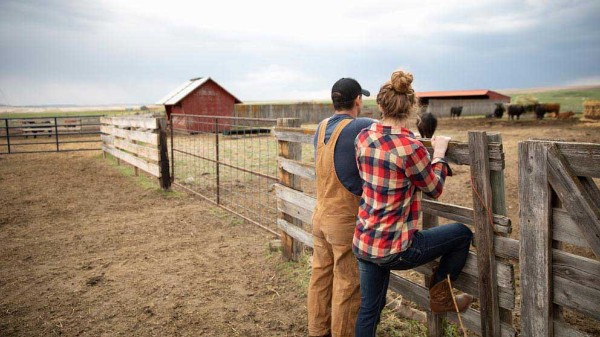Holding Back Cattle Requires Proactive Business Plan

Holding back cattle when processing facilities slow – or even stop – has multiple implications on the farm business. And the sooner risks are identified, the better
by Owen Roberts – Farm Credit Canada (FCC)
“Being proactive is key,” says Denise Filipchuck, a farm management advisor of Swan River, Man. “The sooner you identify and address the risks and come up with mitigation strategies, the stronger your farm or ranch will be and be able to weather the storm.”
For example, she says keeping cattle back requires adequate holding facilities and pasture, both of which have financial implications. So does the human resources required to keep cattle longer. Producers may need to transition a worker from part-time to full-time, to handle increased obligations, she points out.
“The sooner risks are identified and mitigation strategies made, the stronger the farm”
Filipchuck says planning is more effective if beef producers have a solid understanding of their financial position, including an updated net worth statement and a financial and strategic plan based on historical profitability and a scenario impact analysis.
Preparing For Possible DelayOntario cattle producers Scot and Murray Legge know that if a sickness outbreak among workers hits a processing facility, production lines come to a full and sudden stop. As a result, producers may need to hold cattle back for several weeks.
As the COVID-19 pandemic story continues to unfold, the Legges know they need to prepare for any potential processing delays. They’re reducing the energy rations in one of their cattle groups, so they finish more slowly than usual. That will buy some time until the current processing plant situation is clearer.
The Legges are more worried about processing than demand. Now, their farm’s freezer beef trade is up about 25%, and they’re supplying another farm retailer who is also experiencing greater on-farm freezer beef sales.
“Hopefully, this means kitchens are once again becoming places where people cook meals and use beef,” Scot says.
Work Closely With Your Farm TeamFilipchuck urges beef producers to thoroughly assess their operations now and plan for potential marketing disruptions.
She says a close working relationship with farm advisors and creditors is always part of good management, maybe even more so when unfamiliar situations – like a pandemic – arrive and financial upheaval beckons.
Creditors are partners for change, and the more they understand about the matter, the better.
“If the timing of cash flow and payments are an issue, which they could very well be if cattle need to be held back, have those discussions open and honestly early on and let them know what your plan is,” Filipchuck says. “If refinancing or restructuring is required, do the work to have a solid financial and strategic plan so that you can have an open and honest discussion about your business strategy and the support you are asking them to partner with you on.”
Consider New OpportunitiesAnd don’t overlook small opportunities. For example, the Legge’s freezer beef sales aren’t a big part of their operation. But if food security-conscious consumers are moving more towards support for local commodities, there may be a chance to build that part of the business as a partial defence against unpredictable markets.
“Selling into a local market is an example of looking for ways to do things differently than in the past,” says Filipchuck. ”It won’t alleviate the whole problem, but it might take some of the pressure off.”
Bottom LineHolding back cattle comes with risks and implications on the farm, but if processing facilities are closed due to human illness, sometimes producers are left with no choice. Identify and address risks now, experts say, and come up with mitigation strategies. New marketing opportunities may create ways to bring in new income.











